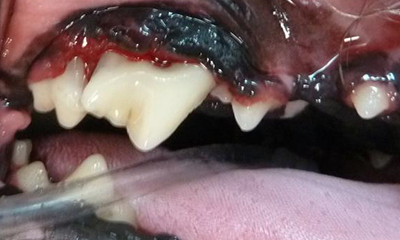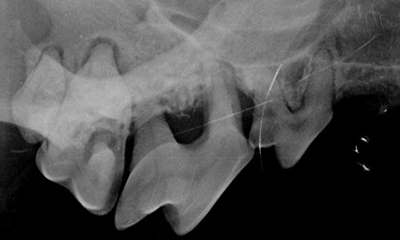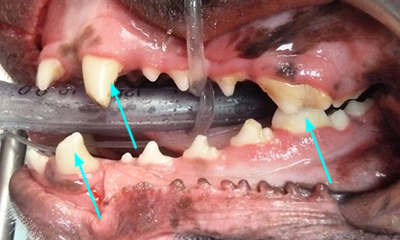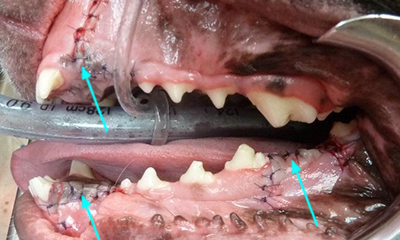Surgical Extraction
Surgical extraction is the preferred technique for the removal of a damaged or infected tooth, as it minimizes complications and offers optimal healing.
KEY FACTS
- The majority of teeth with mild-to-moderate bone loss or crown fracture are not loose and a non-surgical approach to extraction can lead to complications.
- A successful surgical extraction includes:
- Dental x-rays for assessment of root anatomy/disease, adjacent teeth, and bone health.
- Dental nerve block(s) will offer pain control and safer anesthetic levels
- Surgical flap allows access to root elevation, preventing root fractures
- Closure of the extraction site offers rapid healing and prevents “dry socket”
QUICK LOOK




LEARN MORE
Many of the teeth that need extraction are not loose or mobile. These include teeth that are fractured or infected, teeth that have mild to moderate bone loss, teeth associated with an oral tumor, and impacted teeth. Steps of a surgical approach to extractions include:
- Pre-extraction x-rays allow assessment of root structure, adjacent teeth and important regional structures (blood vessels, nerves, nasal cavity, etc.), and root health (resorbing=weakened, fusion to the bone, or fracture)
- Transection of multi-rooted teeth into single rooted segments is an important step to prevent root fractures
- Removal of supporting bone allows accurate placement of elevators and “space” for the tooth to be tipped into
- Post-extraction x-ray will ensure complete root removal and allow cleaning and flushing of the site
- Closure of the site with absorbable sutures reduces pain and will improve healing
Root canal therapy is a less invasive and less painful option to save fractured or discolored teeth than surgical extraction.

